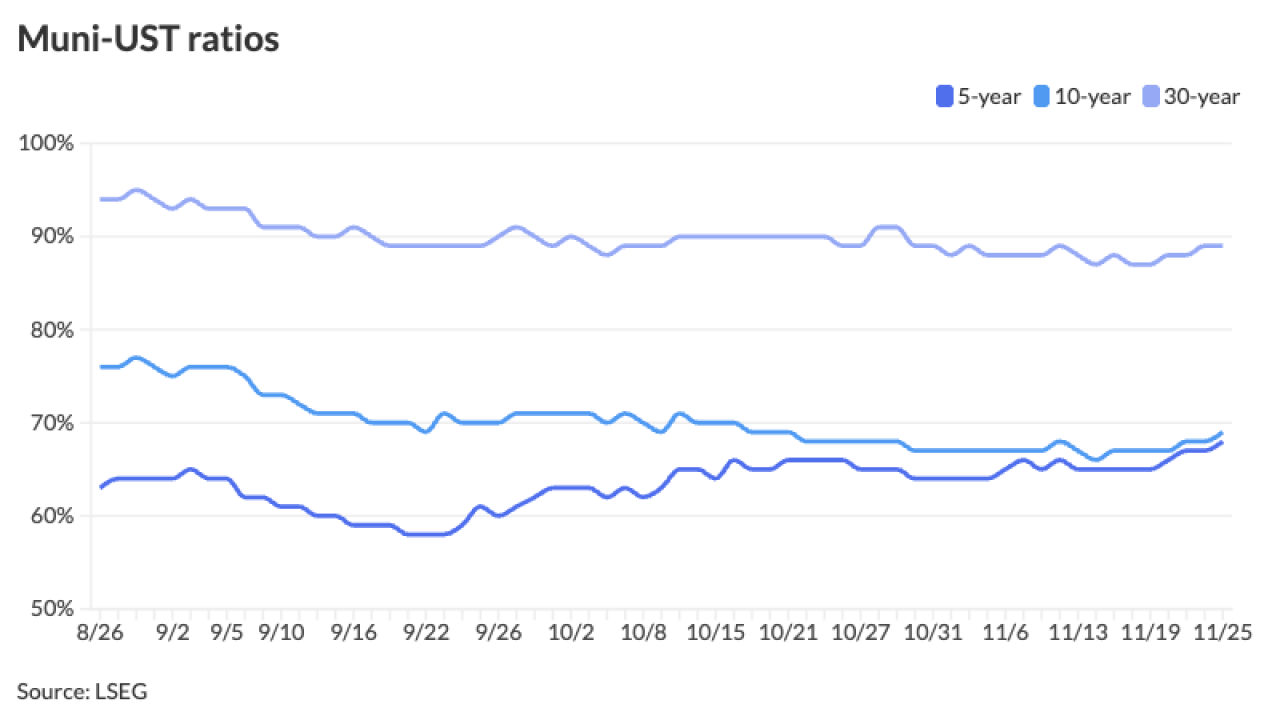Mitchell Savader traveled to Philadelphia yesterday to deliver a reality check.
Numerous newspapers and magazines, including Barron's and the New York Times, have run eye-popping headlines in the past few weeks.
"The Municipal Bond Crisis Is About to Begin." "Protect Yourself as States Implode." "The Coming Collapse of the Municipal Bond Market."
The chief executive officer of municipal credit research firm Savader Asset Advisors gave a speech at the Federal Reserve Bank of Philadelphia yesterday seeking to tamp down the hype.
"Perception over the last year or two has been particularly skewed," Savader said during his "Current State of Municipal Credit Risk" presentation to the Philadelphia Council for Business Economics. "Things need to be reined in a little bit and reality restored to the market."
Savader did not sugarcoat things. The recession that began in December 2007 has devastated tax collections.
State and local governments collected $1.23 trillion in taxes last year, according to the Census Bureau, a 5.6% tumble from 2008.
On top of that, states have promised $1 trillion more in pension benefits than they have set aside to pay those benefits, according to one reckoning by the Pew Center on the States.
Still, Savader said, none of this supports a leap in logic to widespread defaults or Chapter 9 bankruptcy filings. The cost of paying off interest and principal is typically a small percentage of the overall budget.
Based on gross domestic product numbers from the Bureau of Economic Analysis, state and local governments spent $106.8 billion paying interest on debt last year — just 5.3% of their more than $2 trillion in total spending.
In addition, repaying debts is usually at or near the top of municipalities' spending priorities. That means that before paying firemen or paving roads, municipalities pay off their debt.
"Cuts can be made before the problem deteriorates to the point where nonpayment of debt service becomes a reality," Savader said.
Even smaller issuers understand they need to repay bondholders in order to ensure continuing access to the bond market, according to Savader. Given the importance of this access, municipalities place a high priority on repaying debt, he said.
Savader laid out a spectrum of credit problems, beginning with weakness and then ascending through downgrades, defaults, and bankruptcy.
He expects to see plenty of weakness and downgrades, but thinks the number of defaults and bankruptcies will remain a small fraction of the universe of municipal issuers.
The municipal bond market normally sustains around 10 or 20 defaults a year, Savader said. Even if defaults spike to 100 a year, for example, that would represent a tiny sliver of a 60,000-issuer market.
Certain sectors, like special tax bonds, tax-allocation districts, or senior-living facilities, could in fact suffer swelling defaults, he said.
To the extent that rated general obligation credits will default, they will probably be restricted to special situations that do not reflect the credit quality of the broader market, such as Harrisburg, Pa., he said.
Savader has worked in municipal bonds for more than 20 years, including stints at Moody's Investors Service, Banc One, American Capital Access, and Prudential Securities.





